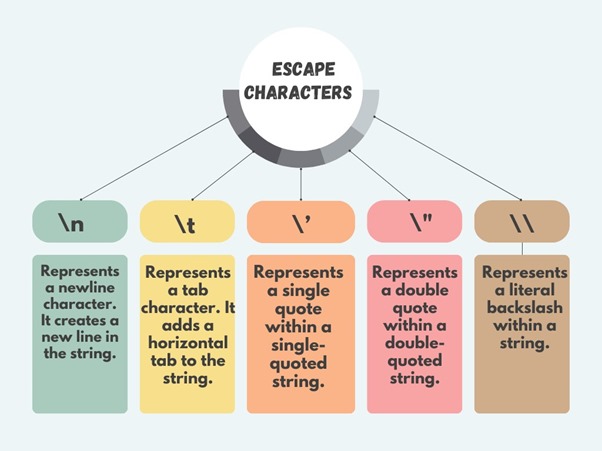Home »
PHP
PHP Strings
By Shahnail Khan Last updated : December 5, 2023
Whether you're just starting your journey in web development or looking to enhance your PHP skills, understanding strings is fundamental. In this tutorial, we'll cover the basics of PHP strings, explore essential functions, and provide examples to help you grasp the concepts easily.
What are PHP Strings?
In PHP, a string is a sequence of characters. These characters can be letters, numbers, symbols, or spaces. Strings are essential for storing and manipulating text-based data in web applications.
Declaring PHP Strings
You can declare strings using single or double quotes. Both have their unique features:
Declaring PHP Strings Using Single Quotes ('')
Strings declared with single quotes are treated literally. This means that escape characters and variable interpolation are not processed within single-quoted strings.
For those of you who don't know what is variable interpolation in PHP-
Variable interpolation is like creating a sentence where you can insert the actual values of variables. When you use double-quoted strings in PHP and include variables inside them, PHP automatically swaps out those variables with their real values. This makes your strings more flexible and easier to understand, especially when you want to include dynamic content.
For example -
<?php
$name = 'John';
$age = 25;
// Using double quotes for variable interpolation
$greeting = "Hello, $name! You are $age years old.";
// Output: Hello, John! You are 25 years old.
echo $greeting;
?>
The output of the above example is:
Hello, John! You are 25 years old.
As you can see in this code, the $name is added to the string value of the $greeting variable.
Note: Variable interpolation is possible only with double-quoted strings.
Now let's take one example to get a clear idea of single-quoted strings.
<?php
$singleQuotedString1 = "This is a simple string with single quotes.";
$singleQuotedString2 = 'It doesn\'t interpolate variables .';
$variable = "dynamic content"; // Define $variable
$singleQuotedString3 =
"You need to concatenate variables like this: " . $variable;
echo $singleQuotedString1 . "<br>";
echo $singleQuotedString2 . "<br>";
echo $singleQuotedString3 . "<br>";
?>
The output of the above example is:
This is a simple string with single quotes.
It doesn't interpolate variables .
You need to concatenate variables like this: dynamic content
- Line 1: Create a basic sentence enclosed in single quotes.
Example: 'This is a simple string with single quotes.'
- Line 2: Deals with situations where you want to include an apostrophe in your sentence. You use \' to tell PHP that the following apostrophe is not the end of the string.
Example: 'It doesn\'t interpolate variables or interpret escape characters.'
- Line 3: Demonstrates how to join (concatenate) a variable's content with a string. The variable $variable should be defined earlier in your code.
Example: 'You need to concatenate variables like this: '. $variable
Declaring PHP Strings Using Double Quotes ("")
Strings declared with double quotes allow variable interpolation, meaning you can directly include variable values within the string. Additionally, escape characters are interpreted. For example:
<?php
$doubleQuotedString1 = "This is a simple string with double quotes.";
$variable = "dynamic content"; // Define $variable
$doubleQuotedString2 = "It can interpolate variables directly, like this: $variable";
echo $doubleQuotedString1 . "<br>";
echo $doubleQuotedString2 . "<br>";
?>
The output of the above example is:
This is a simple string with double quotes.
It can interpolate variables directly, like this: dynamic content
- Line 1: Create a basic sentence enclosed in single quotes.
- Line 2: Demonstrates how to do variable interpolation.
PHP String Functions
Some of the most useful PHP string functions are:
PHP strlen(): String Length
The strlen() function returns the length of a string.
$length = strlen('Hello, World!'); // Returns 13
PHP strpos(): Find a String Inside Another
Use strpos() to find the position of a substring within a string.
$position = strpos('Hello, World!', 'World'); // Returns 7
PHP substr(): Extract a Substring
To extract a portion of a string, use substr().
$substring = substr('Hello, World!', 7, 5); // Returns 'World'
PHP str_replace(): Replace Text in a String
Replace text in a string using str_replace().
$newString = str_replace('World', 'John', 'Hello, World!'); // Results in 'Hello, John!'
PHP strtolower() and strtoupper(): Convert Case
Change the case of a string with strtolower() and strtoupper().
$lowercase = strtolower('Hello, World!'); // Results in 'hello, world!'
$uppercase = strtoupper('Hello, World!'); // Results in 'HELLO, WORLD!'
PHP Escape Characters
Escape characters in PHP strings help you include special characters in your text.
- \' – To print a single quote (') within the single-quoted string.
- \" – To print a double quote (") within the double-quoted string.
- \\ – To print a backslash character.
- \$ – To print a dollar sign ($).
- \n – To print a new line.
- \t – To add tab space.
- \r – For carriage return.

Example
This example demonstrates the use of escape characters in PHP.
<?php
// Newline character
$newLine = "This is a string with a newline character:\nSecond line.";
echo $newLine . "\n";
// Tab character
$tabbedText = "This is a string with a tab character:\tIndented text.";
echo $tabbedText . "\n";
// Single quote
$singleQuote = 'This is a string with a single quote: It\'s working!';
echo $singleQuote . "\n";
// Double quote
$doubleQuote = "This is a string with a double quote: She said, \"Hello!\"";
echo $doubleQuote . "\n";
// Backslash
$backslash = "This is a string with a backslash: \\";
echo $backslash . "\n";
?>
The output of the above example is:
This is a string with a newline character:
Second line.
This is a string with a tab character: Indented text.
This is a string with a single quote: It's working!
This is a string with a double quote: She said, "Hello!"
This is a string with a backslash: \